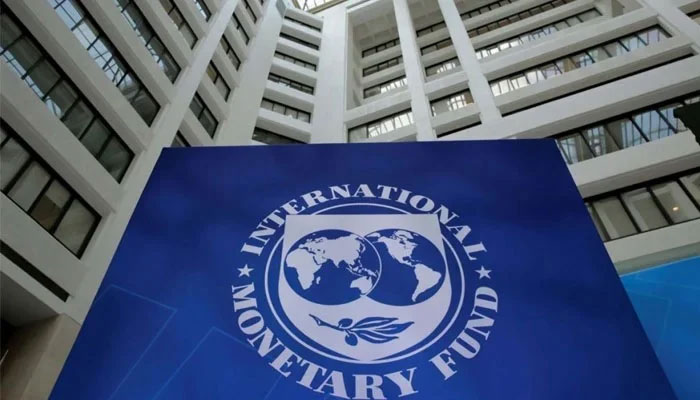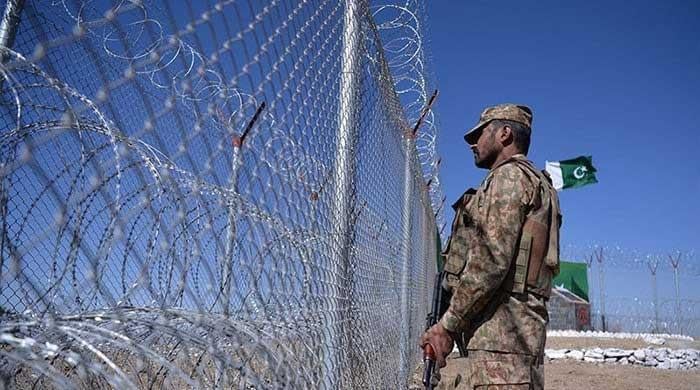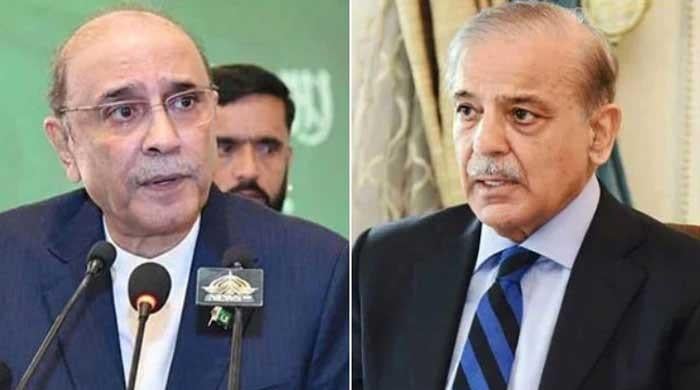$1 billion tranche: Pakistan, IMF fail to reach agreement
IMF assesses Pakistan will have to hike power tariff by more between range of Rs1.50 and Rs2.50 per unit on account of fuel price adjustment
October 17, 2021

- Pakistan, IMF fail to reconcile on Memorandum of Economic and Financial Policies (MEFP).
- IMF staff is still unsatisfied with macroeconomic framework under the MEFP.
- Stay of finance secretary extended till next Tuesday with the mandate to finalise remaining issues with the IMF, says spokesperson.
ISLAMABAD: Despite fulfilling tough conditions, Pakistan has so far failed to strike a staff-level agreement with the International Monetary Fund (IMF) under the $6 billion Extended Fund Facility (EFF).
According to a report published in The News, both sides have failed to reconcile on the Memorandum of Economic and Financial Policies (MEFP).
The Pakistani side expects the finance secretary to prolong his stay in Washington DC for the next few days to make last-ditch efforts in reconciling and evolving consensus on the MEFP and completion of the sixth and seventh reviews, to pave way for the approval of $1 billion under the EFF programme.
IMF still unsatisfied
Despite hectic efforts and fulfilling the toughest conditions of the IMF on account of raising the electricity tariff by Rs1.39 per unit on average for baseline tariff, raising POL prices by Rs10.49 for petrol and Rs12.44 for diesel, the IMF staff is still unsatisfied with the macroeconomic framework under the MEFP and without agreement over it, the staff-level agreement will not be struck and the IMF tranche will be jeopardised.
Sources said that it was a worrisome development that the IMF staff was so far busy in number crunching mainly on the fiscal framework, external front and power sector.
Extraordinary expertise is required for reconciliation on the MEFP as any insertion of wrong or nonviable figures could result in the suspension of the IMF programme. Any failure to reconcile the projections would hamper Islamabad from accomplishing all future reviews under the $6 billion EFF arrangement.
To complete the 36 months of the Extended Fund Arrangement, Pakistan will have to complete 12 reviews, therefore finalisation of the MEFP with deft management and professional skills is critical.
The State Bank of Pakistan (SBP) projected the Current Account Deficit (CAD) to hover around three percent of the GDP, equivalent to $9.5 billion for the current fiscal year. However, the IMF has pitched the CAD on the higher side and the MEFP would give a clear picture but the Fund staff is projecting it over four percent of the GDP.
'Pakistan will have to hike power tariff by more'
In the power sector, the IMF also considers the pace of accumulation of circular debt to be on the higher side than the claims made by the government.
Although the government approved hiking of the power tariff by Rs1.39 per unit, the Fund has assessed that Pakistan will have to hike it by more in the range of Rs1.50 to Rs2.50 per unit on account of fuel price adjustment in this ongoing quarter (Oct-Dec) of the current fiscal year.
'Additional taxation measures'
On the fiscal framework, the IMF has asked to take additional taxation measures, including abolishing GST exemptions, adjusting Personal Income Tax slabs, raising Regulatory Duty and slashing down the Public Sector Development Program (PSDP) by Rs200 - 300 billion. The differences still exist over the pace and phasing of removal of GST exemptions as Islamabad is suggesting removing of GST exemptions in a staggered manner.
On Personal Income Tax (PIT), the IMF wants adjustments in income slabs for which the minimum taxable ceiling of Rs0.6 million might be jacked up. The rate of tax on higher-income slabs would also be increased while the number of income tax slabs would also be decreased.
When contacted, Muzammil Aslam, spokesperson for the minister of finance, said that the stay of finance secretary was extended till next Tuesday with the mandate to finalise remaining issues with the IMF. He said that Shaukat Tarin and Governor SBP Ali Reza were scheduled to go to New York but they would remain in contact virtually and it was hoped that review talks would be concluded within the next few days.
On the other hand, Pakistan’s renowned economist and former finance minister Dr Hafiz A Pasha told The News on Saturday that the raising of electricity tariff and both petrol and diesel would push up inflationary pressures by three percentage points, so the CPI would go up from 9 percent to 12 percent, making lives of salaried and low-income groups miserable. “On the basis of research, the CPI-based inflation would be increased by three percentage points in the wake of raising electricity and POL prices” he said.









